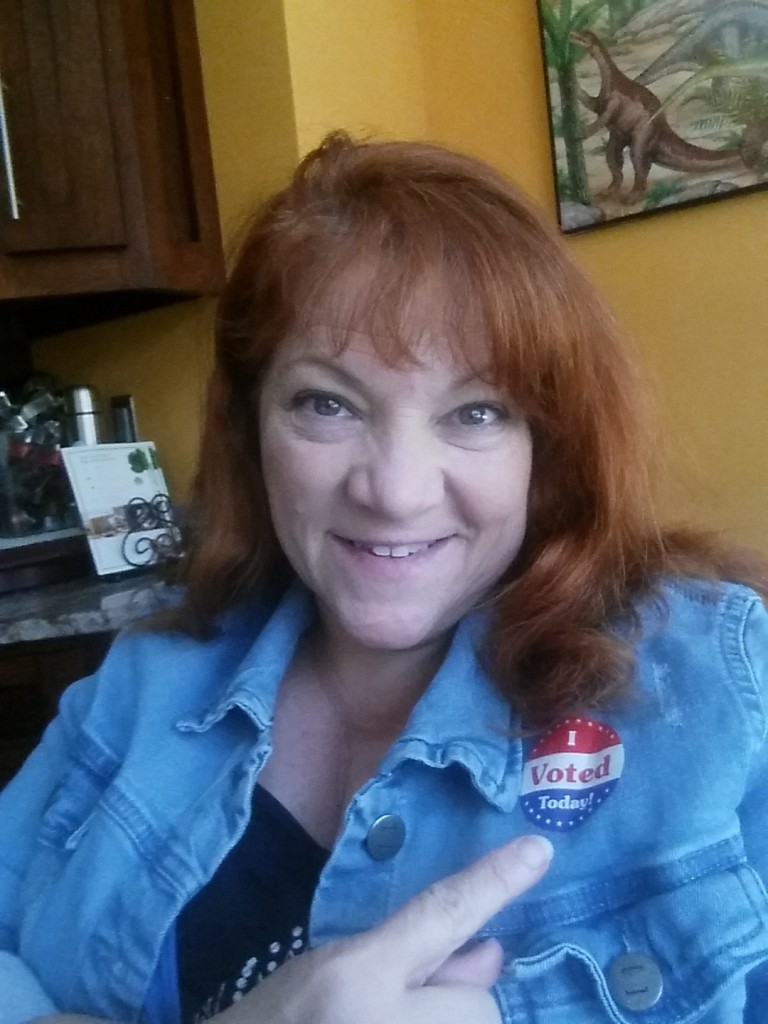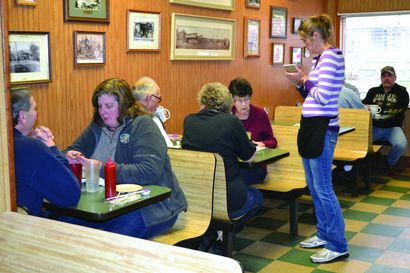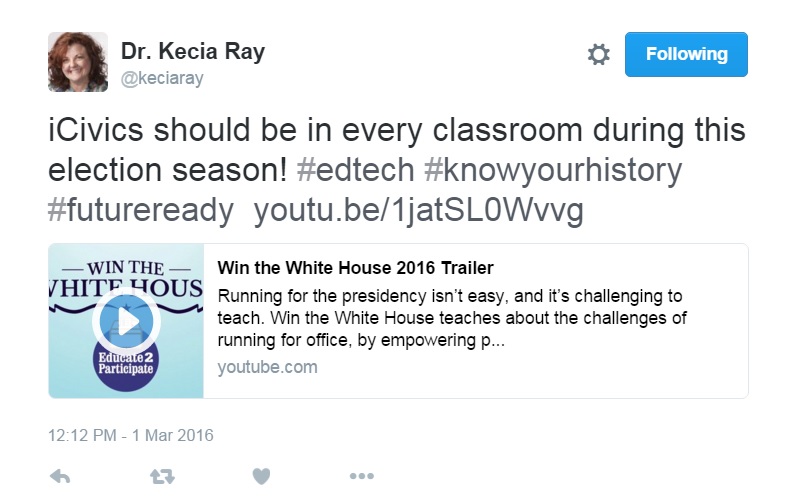“Whatever an education is, it should make you a unique individual, not a conformist; it should furnish you with an original spirit with which to tackle the big challenges; it should allow you to find values which will be your roadmap through life; it should make you spiritually rich, a person who loves whatever you are doing, wherever you are, whomever you are with; it should teach you what is important, how to live and how to die.”
― John Taylor Gatto, Dumbing us Down: The Hidden Curriculum of Compulsory Schooling
 Politics. Something I have always found frustrating due to its ability to polarize friends, family, and colleagues. For example, in my family we raised the kids to be creative, free thinkers encouraging them to make up their own minds on issues based on the values and principles they hold most dear rather than what their friends are doing. As a result we have a great deal of diversity in our family across the political spectrum and it has caused its share of hurt feelings, outcry, and laughter.
Politics. Something I have always found frustrating due to its ability to polarize friends, family, and colleagues. For example, in my family we raised the kids to be creative, free thinkers encouraging them to make up their own minds on issues based on the values and principles they hold most dear rather than what their friends are doing. As a result we have a great deal of diversity in our family across the political spectrum and it has caused its share of hurt feelings, outcry, and laughter.
I try to be the peacemaker in the process between liberal/conservative siblings and those who hold strong opposing views. At times though, I’ll admit it has driven me away from the process and resulted in my avoiding political conversations altogether rather than risk a spirited conversation gone bad.
Politics in education
I work in one of the most political professions that exists and yet many of my teacher/educator buddies share that they are not all that political and that they got into education for the children. Which always frustrates me, because to advocate for children, you need to be political. Most of my educator friends vote Democrat and are very vocal about it. I am an Independent – voting each election as the issues and candidates align with my core beliefs.
As a result, political conversations with educators have often ended with my being lectured as to the evil of any considerations to vote outside party lines. Yet, I have had the privilege to work as a consultant under both Democratic and Republican administrations at the state and national level and have found every single one wants what is best for kids, even if they do not necessarily agree on how to get there.
Politics in the community
One experience I have never had is discussing politics as a community or neighborhood. But today was different. First of all this campaign has been VERY different for me personally. Early on I decided I was going to be informed. I have watched every debate on both sides. I have read many articles and watched quite a few videos. I have paid attention to all the news channels and listened to countless interviews and commentary. I became passionate about with whom I aligned and with whom I did not and why. I looked forward to voting today. I went with other family members and found myself smiling as we all gave the same address to the reception table but asked for different party ballots.
Afterward we stopped for breakfast and this is where the magic kicked in. Our young waitress saw the sticker and commented, “Oh, so you voted today?” to which I returned, “Yes, have you?” She explained to us all that no, she hadn’t voted and probably wouldn’t as she didn’t understand the process and knew nothing about how to do it or who was running.
 The educator in me kicked in and I asked her would she like for me to explain the political process to her and stressed how important it was for her to leverage her voice. You would have thought I was E.F Hutton as the entire restaurant went quiet. The family member at my table started to squirm and said in a whisper, “You can’t do that – teach her everything in a few minutes and you certainly can’t tell her who to vote for.” I laughed out loud and the gentleman in the table behind me said loudly, “Well you can’t.” The waitress excused herself and said she truly wanted me to tell her more and would be back in a few minutes.
The educator in me kicked in and I asked her would she like for me to explain the political process to her and stressed how important it was for her to leverage her voice. You would have thought I was E.F Hutton as the entire restaurant went quiet. The family member at my table started to squirm and said in a whisper, “You can’t do that – teach her everything in a few minutes and you certainly can’t tell her who to vote for.” I laughed out loud and the gentleman in the table behind me said loudly, “Well you can’t.” The waitress excused herself and said she truly wanted me to tell her more and would be back in a few minutes.
The humming in the room started again until she walked back over to my table. I began with asking her if she saw herself as a progressive or more conservative. She said “I am not sure what those words mean.” The small, family owned restaurant went silent again. I explained, at about a 7th grade level, civics 101 – from how you decide your worldview to how the process itself worked.
Uncaucus
 As I shared, others at tables around me piped in with illustrations, missing pieces, and sound bites like, “Just vote for anyone except Trump and you will do fine.” To which Trump supporters snorted in the most polite way. It was delightful and the diversity present in the room made it even more so. Each time she would walk away to seat someone or take an order, more and more tables engaged in a collective conversation – an uncaucus if you will.
As I shared, others at tables around me piped in with illustrations, missing pieces, and sound bites like, “Just vote for anyone except Trump and you will do fine.” To which Trump supporters snorted in the most polite way. It was delightful and the diversity present in the room made it even more so. Each time she would walk away to seat someone or take an order, more and more tables engaged in a collective conversation – an uncaucus if you will.
I wasn’t facilitating the conversation – we all were just having a conversation. And the views were diverse but presented in a respectful manner that made me proud to be an American. Policies, campaign ads, injustices, and celebrations were discussed in everything related to the election process, Obama’s presidency, and the current craziness of the GOP “Trump effect”. Each time the waitress returned everyone grew quieter and I continued with the civics lesson. Occasionally, others jumped in with questions about the process and others would answer those questions. It was completely spontaneous, but flowed like it was orchestrated. At the end of the conversation I explained how to get registered to vote and everyone encouraged her to do so.
It was the most pleasant political experience I have ever had and it represented America the way I see her in my heart. But it made me question how this lovely 20-something could get through 12 years of school (she told us she graduated from high school locally) and know so little about politics and civics. At first, I blamed her parents and then I blamed our educational process. We have to do a better job educating our next generation of citizens about not only the mechanics of the political process but the importance of being involved. I wonder if the dumbing down of American politics we are experiencing in this election process (and the widespread acceptance of such) is the result of how we teach civics. We have to create ways to engage children in the process that are uniquely meaningful to them and their circumstance.
Kecia Ray, Executive Director for the Center for Digital Education, shared this on Twitter today. Maybe gaming is the answer to personalizing the civics curriculum and creating an informed citizenship.
 I like the way this website describes the civics experience for elementary age children.
I like the way this website describes the civics experience for elementary age children.
Your children will practice thinking and acting responsibly while participating in real-life problem solving situations and practicing democratic deliberation. They will learn about leaders, activists, and every-day citizens who have taken public action. It is our hope that each student will find his/her voice and work to be a change agent in his/her community!
Rather than teaching them about citizenship, let’s engage our students in the political process. Let’s commit to not letting another child graduate from our schools not knowing how to get involved in the political process and make their voice heard and counted.
Latest posts by Powerful Learning Practice (see all)
- Hurry, you do not want to miss out on this… - November 3, 2020
- Resist the Urge to Quit Prematurely - October 26, 2020
- Let’s Move Past Feeling Disconnected from Your Students. Words Matter - October 24, 2020


Awesome. Proud of you.
Go Sheryl! So glad to hear the teacher come out in you, especially with the situation. I am still smiling!